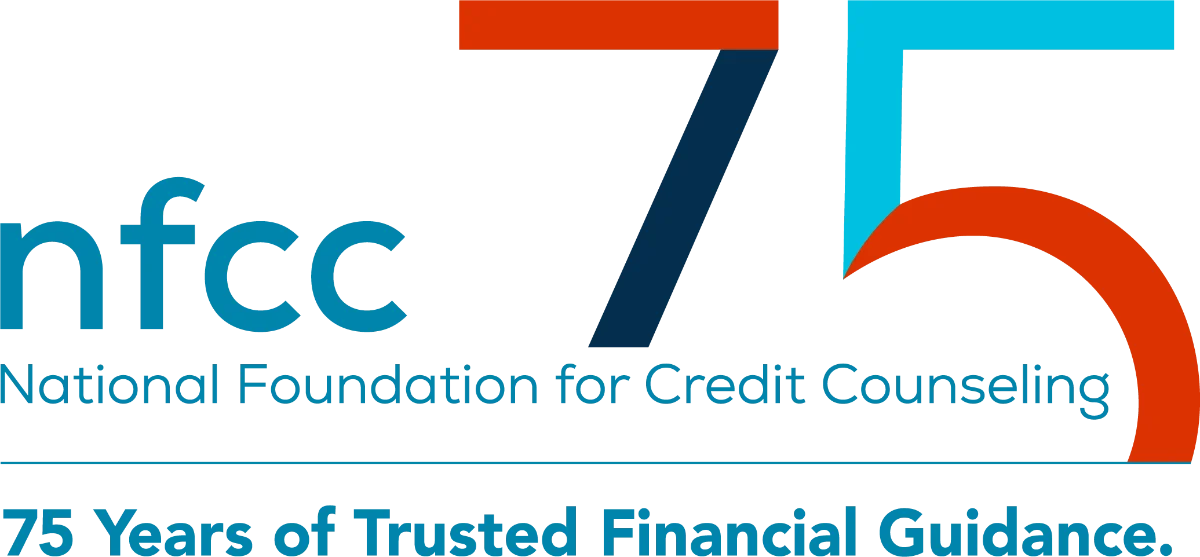Six Things Every New American Should Know About Managing Money in the U.S.
Coming to a new country means facing a lot of uncertainty. As a new immigrant to the U.S., you may be worried about your basic, day-to-day survival and your ability to provide a secure future for yourself and your family.
It’s normal to feel intimidated by such a significant change, but the last thing you want to do is avoid thinking about finances and credit. To set yourself up for success, you’ll need to understand some basics about money management in your new country. The National Foundation for Credit Counseling (NFCC) offers the following six tips to help make your transition smoother.
1. Save for emergencies
The key to financial stability is saving money. The sooner you have a plan for saving, the easier it will be to avoid major problems with money, such as going into debt.
We recommend setting a goal of saving at least three months worth of your living expenses. Why that amount? Because the money will help you pay for things like rent and food if you lose your job, if you have a medical emergency or if some other unexpected financial problem comes up.
Here are a few tips for being successful in saving money:
- Insurance: Choose a bank account that has FDIC or NCUA insurance. This insurance prevents you from losing your money (up to $250,000) if the bank goes out of business.
- Interest: Look for a bank account that pays interest on your savings. This will help you earn free money. Credit unions are a great place to look, since they tend to offer higher interest rates than banks.
- Fees: Avoid bank accounts that charge you a monthly fee just for having an account.
The key to being successful at savings is consistency. In other words, try to put some money into your savings from every single paycheck for the rest of your life. You can even talk to your employer or a bank representative and ask them to set up an automatic deposit that comes out of each check and goes directly into your savings account.
2. Avoid debt
Saving money is nearly impossible when you’re in debt. Why? Because the interest rates you will pay on debt, especially credit cards, are ultra-high in comparison to the rates you earn on your savings.
You might be tempted to use debt to help you cover expenses, but whenever possible, try to use money you’ve already earned and saved. If you do need to borrow money, avoid going to places like Check Cashing businesses and Payday Loan companies. These companies often use tricky tactics and can end up trapping you in a cycle of high-interest debt.
Instead, consider looking for a personal loan with low interest rates from a local credit union, and make sure the payments are affordable. You might also consider using a credit card, but it’s best to skip credit cards if you can’t pay off your debt owed on the card within 30 days.
You can also speak to an NFCC-certified credit counselor to get help understanding your options for dealing with debt and emergencies.
3. Establish cCredit
Credit scores can be one of the most confusing parts of managing money in the U.S.
You typically need a credit card and/or loans to start building credit. But if you don’t have any history of using credit cards or loans in the U.S., it is nearly impossible to be approved for a new account.
So how do you get started? Here are a few options:
- Secured credit cards: These are credit cards that require a cash deposit to qualify, but do not require a credit check. Your charges on the card and your payment activity will be reported to the credit bureaus.
- Lending circles: This is a group of people who take turns lending each other money and paying it back. There may be a nonprofit or another trusted organization in your area that organizes lending circles and will report your loan payments to the credit bureaus to help you build your credit scores.
- Authorized user: If you have a loved one with good credit, ask them to add you to their credit card as an authorized user. When they do, their account information will appear on your credit reports, but you will not be legally responsible for their debt.
If you want to know what information is on your credit reports, you can pull all three of your reports for free from AnnualCreditReport.com — the only federally authorized website where you can get them.
4. Beware of scams
Sadly, financial scams are common in the U.S. Here are some common claims that scammers make, and what to look out for:
- Guaranteed results, such as a promise that you will qualify for a loan with no credit.
- You’re pressured to act quickly before a special offer expires.
- A person or company claims you will “get rich quick” if you send them money.
- You’re asked to sign blank documents, or sign paperwork in a language you don’t understand.
Before signing anything or paying money to an unfamiliar company, do some research to find out who you’re dealing with. The Consumer Financial Protection Bureau (CFPB) and the Federal Trade Commission (FTC) are both good resources for learning how to identify and avoid dangerous scams, and NFCC-certified counselors are happy to help, too.
5. Housing
Finding affordable housing is a challenge, even for those who are not new U.S. citizens. One place you can look for information on affordable rentals is the Housing and Urban Development (HUD) website, which also has information about your rights as a renter.
If buying a home is your financial goal, you’ll need to work on building your credit and saving money for a down payment. To qualify for a mortgage, you usually need credit scores of at least 620 or higher. A down payment equal to 20% of the home price is also encouraged. However, you might qualify for special loans, such as an FHA loan, or for first-time homebuyer (FTHB) programs that help make it easier to purchase a home.
6. Retirement
Once you have money saved for emergencies, it’s important to start saving money for retirement. Yes, U.S. workers can potentially qualify for Social Security to help cover expenses in retirement, but it’s rarely enough money to live off of.
What’s the best way to start saving for retirement? For most people, it’s by putting money from each paycheck into a 401(k) or another retirement account offered by your employer. In some cases, your employer may even add money (also known as an employer match) every time you put money into your retirement account. If you’re not sure what’s available, make sure to contact your HR department or payroll and ask.
Can you borrow money from your retirement account? Yes, but we don’t recommend it! When you take a loan from your retirement, you will have to face taxes and penalties. Plus, you’ll lose out on the interest that your retirement savings would have earned in the future.
You can build a solid financial life in the U.S.
It is definitely possible to navigate your finances in the U.S. with success. But you will need a solid financial plan. For answers to questions about building credit, debt management and reaching personal financial goals, the NFCC can provide helpful financial counseling in-person, by phone, or online. To talk to a certified financial counselor, schedule an appointment right away.
Bruce McClary is Senior Vice President of Memberships & Communications at the National Foundation for Credit Counseling.


